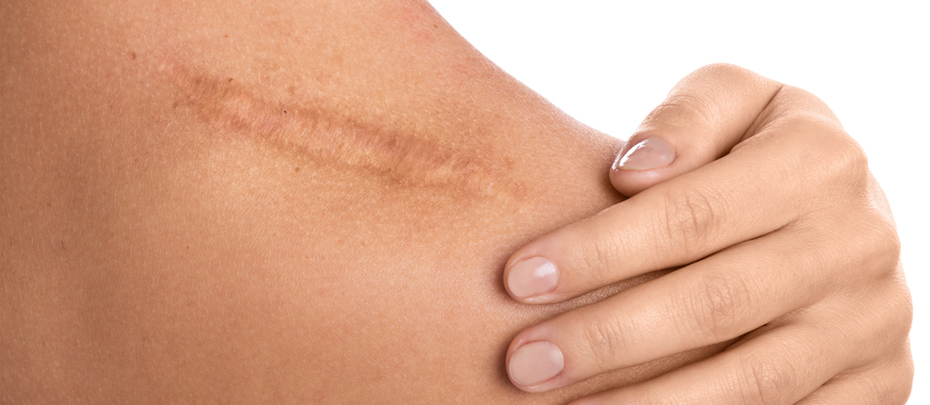Diabetes
Diabetes-related nerve damage can lead to cellular dysfunction that can impair wound recovery. Nerve damage also introduces the risk of foot ulcers: open sores or wounds that may require hospitalization. According to the American Podiatric Medical Association, about 15% of people with diabetes will experience foot ulcers.
"At this stage, due to the reduced peripheral circulation that can accompany diabetes, it can be difficult for wounds to heal," Nelson explained. "And high blood sugar levels can increase the risk of infections in ulcers and other wounds."
Cancer
People with cancer can be more susceptible to open wounds and sores, due to depleted nutrient levels. Both cancer itself and its treatments can compromise the health and strength of skin and reduce its ability to heal. Around 95% of people who undergo radiation treatment will experience subsequent skin injuries or reactions, known as radiation dermatitis.
Meanwhile, up to 74%1 of those with cancer may experience some degree of cachexia, a potentially life-threatening condition characterized by the loss of lean body mass. That loss, Nelson said, is often accompanied by impaired wound healing: "The issue for people with cancer is not just the cancer itself, but the impact of the treatments they receive like chemotherapy and radiation, which often leads to a decrease in appetite. And simply put, if you are not eating, you’re not getting the nutrients you need to help with the wound-healing process."
How Nutrition Can Help
Eating a diet that's rich in whole foods and provides adequate calories and nutrients is one way you can improve your nutrition status and ability to heal from surgical wounds. However, sometimes the normal diet is not enough. When you're also managing a chronic condition that can even further impair nutrition status and healing, a therapeutic nutrition drink like Juven® can help.
Juven provides a balance of key ingredients that go above and beyond basic nutrition to help support wound healing.
- Arginine promotes blood flow and builds proteins. [3]
- Glutamine supports the immune system and promotes new tissue. [4,5]
- HMB slows protein breakdown and enhances tissue growth.
- Collagen protein helps stimulate internal collagen production[6,7]
- Micronutrients like zinc, vitamins C, E and B12 are also important in the wound healing process.[8]




Social Share